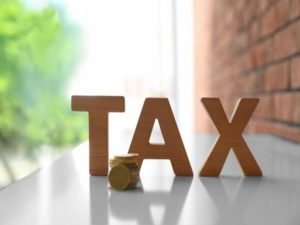This article provides an overview of corporate tax in South Africa, including corporate tax rates and dividend taxes. It is aimed at self-employed workers and business owners liable to pay corporate tax in the Republic of South Africa. The guide explains the corporate tax system in South Africa, who pays corporate tax, and the different types of corporate tax for sole traders, partnerships, and small businesses.
The article covers various topics, including turnover tax, corporate tax exemptions and credits, VAT, and how to file your corporate tax return. It also provides information on other business tax types in South Africa, such as PAYE for employees, the Unemployment Insurance Fund, and the Skills Development Levy. Additionally, the guide offers advice for foreign business owners and useful resources for those seeking further information on corporate tax in South Africa.

The Corporate Tax System in South Africa
The corporate tax system in South Africa is based on a flat rate of 28% for registered companies, with different tax rates applicable to smaller or different kinds of companies. The South African Revenue Service (SARS) collects most of its corporate income tax from foreign companies with a branch in South Africa and from personal service provider companies. However, for tax years ending on or after 31 March 2023, the tax rate will be reduced to 27%. Companies are required to pay tax on their worldwide income, with taxable income being calculated as gross income minus allowable deductions. Businesses can register for and pay their taxes online or at a local SARS branch in accordance with the relevant policies and regulations.
Who Pays Corporate Tax in South Africa?
Corporate tax in South Africa is payable by all registered businesses in the country to the South African Revenue Service (SARS). Public companies, private companies, state-owned companies, personal liability companies, small business corporations, co-operatives, collective investment schemes, share block companies, corporate bodies, public benefit companies, and dormant companies are among the entities that are required to pay corporate tax in South Africa.
Corporate Tax for Sole Traders and Partnerships
If a self-employed or freelance worker or a business that trades as a sole proprietorship or a partnership (or unincorporated joint venture) qualifies for taxation as an individual. In such a scenario, the individual must submit a personal income tax (ITR12) rather than a business tax return in South Africa. Partnerships can be between two or more people, and each partner is taxed as an individual on their share of the partnership profits.
Corporate Tax Rates in South Africa
All companies in South Africa are subject to a flat corporate tax rate of 27%, while trusts (excluding special trusts) pay a higher rate of 45%. Additionally, companies are subject to a capital gains tax rate of 21.6%. Trusts pay a higher capital gains tax rate of 36%, while special trusts and individuals are liable for a lower rate of 18%. The corporate income tax rate payable for years of assessment ending on or after 31 March 2023 is 27% (previously 28%).
Small Business Tax in South Africa
If you run a small business in South Africa, you have several options for registering your business, which will affect how you pay business tax. Here are the three main ways to register your small business for tax purposes in South Africa:
Register as a Standard Private Company
A standard private company is a separate legal entity that pays corporate tax in South Africa at the standard rate. If you choose to register as a Close Corporation (CC) or a Cooperative, you will also pay corporate tax in South Africa at the standard rate.
Register as a Micro-Business for Turnover Tax
You may qualify as a micro-business if you are a self-employed individual or a company with an annual qualifying turnover that does not exceed R1 million. This alternative to paying company tax in South Africa can simplify the tax process for your business. Micro-businesses have the option of paying their turnover tax, VAT, and employees’ tax bi-annually. However, some entrepreneurs are excluded from this option.
Here are the current progressive tax rates for micro-businesses:
| Taxable turnover | Rate of tax |
| R1–R335,000 | 0% of taxable turnover |
| R335,001–R500,000 | 1% of taxable turnover above R335,000 |
| R500,001–R750,000 | R1,650 + 2% of taxable turnover above R500,000 |
| R750,001 and above | R6,650 + 3% of taxable turnover above R750,000 |
Register as a Small Business Corporation (SBC)
If you want to pay tax for small businesses in South Africa, you can register as an SBC if your annual turnover does not exceed R20 million and you meet other criteria. Generally, SBCs are taxed at a lower corporate tax rate in South Africa than other companies.
Here are the SBC tax rates for 1 April 2023 through 31 March 2024:
| Taxable Income | Rate of Tax |
| R1–R95,750 | 0% of taxable income |
| R95,751–R365,000 | 7% of taxable income above R95,750 |
| R365,001–R550,000 | R18,848 + 21% of taxable income above R365,000 |
| R550,001 and above | R57,698 + 27% of the amount above R550,000 |
It’s important to note that special rates apply in certain industries, such as mining and long-term insurance.
In conclusion, small business owners in South Africa have several options for registering their businesses for tax purposes. Registering as a standard private company, a micro-business for turnover tax, or an SBC can all have different tax implications, so carefully consider which option is best for your business. More information on registering your business is available from the South African Revenue Service.
Turnover Tax in South Africa
Turnover tax is a simplified tax system designed for small businesses with an annual turnover of R1,000,000 or less. This tax system replaces corporate income tax, VAT, capital gains, and dividends tax in South Africa, although businesses can remain in the VAT system. The turnover tax rates in South Africa are progressive, starting at 0% for businesses with a turnover of R335,000. For businesses with a turnover between R335,001 and R500,000, the tax rate is 1% of each R1 above R335,000. For businesses with a turnover between R500,001 and R750,000, the tax rate is R1,650 plus 2% of the amount above R500,000. Finally, for businesses with a turnover of R750,001 and above, the tax rate is R6,650 plus 3% above R750,000.
Corporate tax exemptions and credits in South Africa
Corporate tax exemptions in South Africa
In South Africa, organizations such as not-for-profit and public benefit organizations are exempt from paying corporate tax. However, for-profit businesses can deduct the following charges from their taxable income as allowable business expenses:
- Business expenses: including material and equipment costs, employee costs, administration costs, business rental costs, office supplies, travel, uniforms, wholesale purchase costs for goods resold, financial charges, utilities, legal fees, marketing, and promotion.
- Capital expenses: such as capital equipment, machinery, and renovation costs.
- Start-up expenses: expenditure incurred for business purposes in the period before the commencement of the first year of trade, provided these expenses would have qualified as deductible business expenses within the general operation of the business.
- Net operating losses: any losses carried forward from previous years.
Corporate tax credits in South Africa
In addition to these deductions, corporations paying corporate tax in South Africa can also benefit from various tax credits and incentives. These include:
- Foreign tax credit: South African residents can claim back taxes paid on foreign-sourced income as a tax credit, provided this income has been included on the tax return. Moreover, some countries have a tax treaty with South Africa to prevent double taxation.
- Research and development (R&D): R&D costs within South Africa are 150% deductible, subject to government approval.
- Headquarter company regime: certain exemptions and benefits offered to companies using South Africa as a headquarters location, subject to certain company requirements.
- Industrial policy projects: an incentive for manufacturing businesses (excluding those dealing in alcohol, tobacco, arms, and biofuels) to participate in energy-efficient projects. Tax allowances include up to 55% of the cost of any manufacturing asset used in the project (not exceeding R900 million) and a training allowance.
- Special Economic Zones (SEZ): for businesses operating in any of the country’s SEZs, there is a reduced corporate tax rate of 15% along with a 10% allowance towards new/unused building costs and a reduction of employees’ tax.
- Energy efficiency savings: a deduction of R0.95 for each kilowatt-hour saved during the tax year.
- Venture capital companies: a tax incentive for investors in small and medium-sized businesses through venture capital.
These exemptions and credits can help businesses in South Africa to reduce their tax liability and, in some cases, encourage investment in certain industries.
VAT in South Africa
VAT, an indirect tax, is payable by some companies in South Africa. The current VAT rate is 15% on the supply of most goods and services, including imported goods, with some exemptions. Businesses with an annual turnover exceeding R1,000,000 must register for VAT but can also register voluntarily.
Corporate tax year in South Africa
In South Africa, the corporate tax year runs from 1 March to the end of February of the following year. Companies must submit their annual tax returns for the previous tax year between July and November. Additionally, they must submit two provisional tax returns, with the first payment due in the first half of the year and the second payment due at the end of the year. These provisional tax returns must contain estimates of the income earned for the current tax year.
All companies in South Africa are required to pay their taxes using the provisional tax system, which involves three instalments. The first two payments are based on estimates and are made six months during the tax year. The final payment is made along with the final annual tax return, which consists of the balance owed for that tax year.
Companies in South Africa have several payment options for their corporate tax, including online banking, electronic funds transfer, bank payments, eFiling, and SWIFT payment (available only for foreign payments).
It is important for companies in South Africa to adhere to the tax year and submit their tax returns and payments on time to avoid penalties and interest charges.
How to File Your Corporate Tax Return in South Africa
To pay business tax in South Africa, businesses must register as taxpayers with SARS. The business tax return form is called the ITR14, which can be filed through eFiling or at a local SARS branch. The ITR14 requires businesses to provide their SIC code, which is used to classify the nature of their business activities. Businesses must submit their annual tax return within one year from the end of their financial year. Provisional tax returns are also required twice a year, with payments made through online banking, electronic funds transfer, or bank payments. After submitting the ITR14 return, businesses will receive a notice of assessment from SARS.



